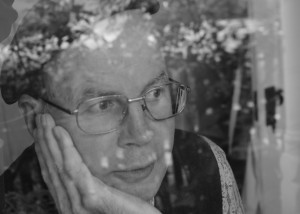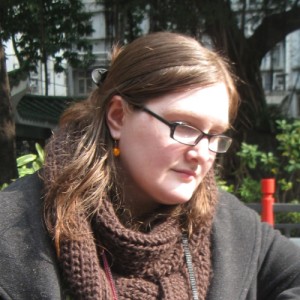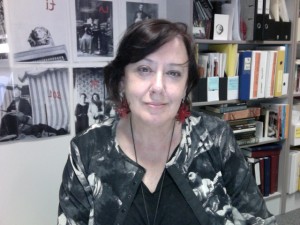 Belle Ling is a university graduate from the University of Hong Kong, and later she has completed a Master of Creative Writing in the University of Sydney. She has a special interest in writing poetry. Her favourite novelist is Haruki Murakami, and her beloved poems are those which can capture insightful images with in-depth philosophical meanings.
Belle Ling is a university graduate from the University of Hong Kong, and later she has completed a Master of Creative Writing in the University of Sydney. She has a special interest in writing poetry. Her favourite novelist is Haruki Murakami, and her beloved poems are those which can capture insightful images with in-depth philosophical meanings.
A Good Morning in the Crowded Train
Upon the window of the shuffled train, the sunlight eyes are churned white.
Eyes closed, heads grinding in circle, heels tap balance, disturbed by an awkward
halt—then resume their momentum as the train reels, as if smoothing all the angular
shoulders until they are as round as the river-washed pebbles—any uncertain frictions among
shirts, any unnoticed nudges, any sharp pokes of noses are harmonized
in the hypnotic back-and-forth of our heads and our heels. No ruins, no cries, no
surprises intrude when the space between one another is tied by the repetitive
rhythm. Sweat behind my ear, nearly tiptoes onto his shoulder—drops and is swept
by an unbuckled cuff, air-probing, of an unknown face—my vertebrae are chained,
his half-zipped fly slides over my thigh—fingers collide, chime—exchanging unborn rhymes.
His yawn—sour milk and leftover tuna—unsettles my dream of a Sultan’s perfumed verandah.
My forehead, rimmed by his chin, begs his collarbones globe
as a soft-fat pillow, as willows sway across the window—that gradually-eased hiss,
that deep ebb, zips our long-missed dreams rolling in our laces and fabrics. In-depth,
severely-pressed—his shoelaces, etched into my soles, don’t tussle. My jade-rabbit
pendant, that vivid verdant, is unconsciously-locked in his creamy collar,
as a green bean-sprout entwined in cotton. The wheels keep tracking the rail left-and-right, my
eyes trail his ribs, that strain and slack—as aligned handrails
surface and vanish, hardly held. Hot air curls my eyelashes, flicks my mind’s haze—
“Excuse me”, I say. “I’m sorry,” he beams. The door closes—
hard as husk—I look at the train until it’s reduced into a dark dot in the dense green.
Aussie
Dust, grit, ash,
keen sheen in lashes
of weeds;
your sweat appears
as a solid glow.
An eddy of rose
in your fist
draws in the winds
of all directions,
fast, firm, not fierce.
Impression
“Take it back,” I call,
I recall—petals in the winds. Rippling,
the church bells, remind me
of the air, the water, the light
and—the blue sky—all the basics
for a decent day,
for the first day
a human starts to breathe, or for—
the moment that time
is first numbered as days,
which, unfortunately, can’t outlast
the time of universe in reverse—
my undated calendar,
and your watch ridded of hands
are the most reliable.
I haven’t noticed
the tree outside—
my balcony is Jacaranda until
the sunshine determines to rinse away
the densely-vivid purple:
those blurring whites.
The strong shine on the apex
of the cross—that sharp
and cold point is hardly tamed, not even
the sisters’ buzzing lips:
regular amens can’t prop up
three trampled daisies.
“Take it back,” I call,
yes, I recall—the remains in your pocket—
ripped cloths, molten honey and several
unclassified name cards
plus a familiar scent that’s long
been forgotten, or—
long been hid
for being forgotten.
Red tea and ice, as clouds
pass over, turn dim and gleam again—
a colour, between cool and warmth,
beyond exact depictions of all kinds,
doesn’t know how to cheat:
we’re just two ordinary passers-by,
who can’t afford to lie.




 Melbourne-born poet, Peter Bakowski, keeps in mind the following three quotes when writing poems ‐ “Use ordinary words to say extraordinary things’–Arthur Schopenhauer, “Writing is painting”– Charles Bukowski, anand “Make your next poems different from your last”–Robert Frost. Visit his blog
Melbourne-born poet, Peter Bakowski, keeps in mind the following three quotes when writing poems ‐ “Use ordinary words to say extraordinary things’–Arthur Schopenhauer, “Writing is painting”– Charles Bukowski, anand “Make your next poems different from your last”–Robert Frost. Visit his blog 



